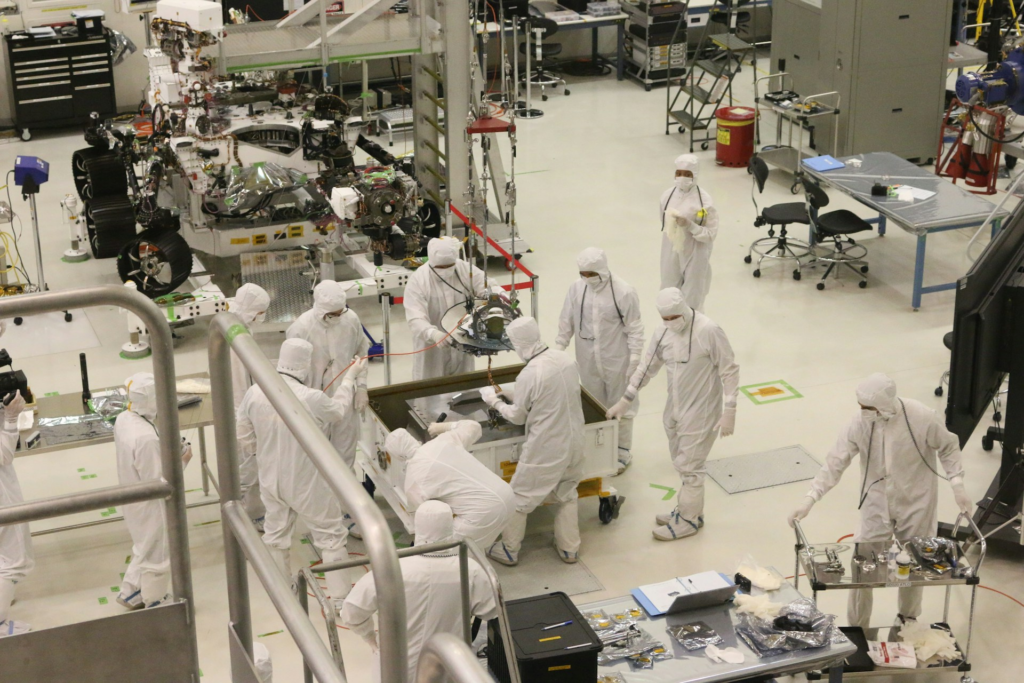When you think about manufacturing operations, you might imagine all of the machines on your production floor. But, don’t forget about the people who make those machines run!
The human side of manufacturing is just as important as the equipment you use. Keep reading to learn more about how you can improve employee engagement and performance in manufacturing operations.
Employee Training and Development Programs
Employee training shouldn’t end when you think the person is ready to perform a specific job. Employee training and development programs should prepare hires for lifelong careers within your company. If you don’t provide ongoing training, employees will see themselves stuck in their current positions. For most people, that doesn’t seem like an appealing outlook. They’d rather leave the organization to pursue more challenges and higher pay.
Critically, you need to make employee training and development a part of each employee’s job. If training adds to their workload, employees may feel overburdened, a primary reason people say they quit their jobs.
Over time, you should see that you retain your best employees, and you get to move them into manufacturing operations positions with more responsibility.
Team Building Activities and Incentives
Isolation at work leads to a host of problems, including:
- Poor performance
- Absenteeism
- Apathetic and negative attitudes
Team-building activities help people feel more connected to their colleagues, which can make employees feel more involved and responsible.
Some team-building activities to consider include:
- Sharing meals together (either at work or a restaurant)
- Making and sharing playlists on streaming services like Spotify
- Taking a mindfulness class together
- Volunteering at a local nonprofit
You shouldn’t force employees to attend events. That can undermine the sense of well-being and belonging that you want to foster. But you can use rewards to incentivize participation. Rewards could involve anything from gift cards to extra vacation hours.
Additionally, you can give employees information about how they can become more team-oriented people. Building good relationships at work often involves:
- Active listening
- Asking for help when needed
- Showing gratitude
- Honoring commitments
Don’t assume that every member of your manufacturing operations team knows how to do these things. Not everyone has these skills, but everyone can learn to get better at them.
Workplace Safety and Ergonomics
Not surprisingly, employees don’t accomplish as much when they’re uncomfortable or in pain.
That’s why you should prioritize workplace safety and ergonomics.
Go above OSHA’s safety requirements to protect your employees and show them that you care about their health. Workplace safety isn’t completely about empowering employees, though. It’s also good for your bottom line. Enhanced workplace safety programs often lead to lower insurance rates, legal fees, and lost productivity.
You should also pay close attention to ergonomics. Any repetitive task can eventually cause strain injuries and musculoskeletal disorders. Regardless of what your manufacturing operations employees do, make sure they have appropriate protections in place. If someone works in an office all day, invest in chairs with exceptional back support and other items that help prevent strain. If someone works on the manufacturing floor, make sure they have the right footwear or anti-fatigue mats.
Communication and Feedback Channels
Your manufacturing operations employees work closely with your machines and processes, so they likely have helpful insights into how you could improve aspects of the business. Of course, not everyone feels comfortable sharing their thoughts with members of the leadership team. Some might even worry that retaliation will derail their careers.
Open communication and feedback channels are important, but you need to offer anonymous options to ensure you get honest information from employees.
Modern communication technologies have diverse features that let you interact with employees through:
- Social media
- Polls
- Videos
- Emails
- Internal systems like Slack
Harness these and other options to build a community in the workplace, gather actionable insights from invested employees, and distribute critical information as it becomes available.
Achievement Recognition and Rewards
Do your manufacturing operations employees feel recognized for their hard work? At the end of the day, people work so they can earn money. They choose certain jobs with specific companies, though, because they get some fulfillment from the culture.
Achievement recognition and rewards can play a big role in retaining top talent. Yes, your best employees want regular raises, but most of them also need some form of recognition to stay motivated.
Importantly, not all employees want the same types of recognition. While one person might bask in the glow of public praise, another might feel horrified. Get to know your employees so you can offer appropriate rewards. (Also, you can take advantage of modern communication technologies to ask employees about their preferences.)
Additionally, you can make some rewards automatic. For instance, the person who meets a certain metric this month wins a gift card. You can easily roll this reward over month to month, making adjustments as needed to honor the recipient’s desires.
Stay Current With Employment Trends
Like technology, the human factors in manufacturing operations change over time. Keep up with the latest trends by following MRINetwork.

Connect with MRINetwork